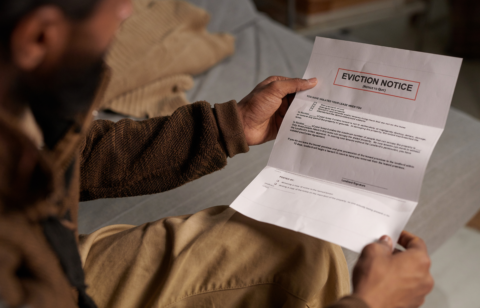Taxes are a part of life, and for most people, the thought of falling behind on them can be stressful. However, not paying your taxes can lead to serious consequences, including the possibility of jail time. In this article, we’ll explore whether you can go to jail for not paying taxes, what qualifies as tax fraud or evasion, and what you can do if you can’t pay your taxes.
Can You Go to Jail for Not Paying Taxes?
Yes, you technically can go to jail for not paying taxes, but it depends on the nature of your offense. The IRS doesn’t automatically send people to jail for simply not paying taxes, especially if they’re unable to do so. Jail time becomes a possibility in cases of willful tax evasion or fraud.
Civil vs. Criminal Penalties
Civil penalties like fines and interest are far more common than criminal prosecution. Most taxpayers who fall behind on payments face financial penalties rather than jail time. Criminal charges are reserved for cases where someone deliberately tries to defraud the IRS.
Misconceptions About Jail Time
Many people mistakenly believe that not being able to afford to pay their taxes will result in jail time. In reality, the IRS offers numerous options for people who can’t pay their taxes.
What Qualifies as Tax Fraud or Evasion?
Tax fraud and tax evasion occur when someone intentionally avoids paying taxes that they owe, usually by lying or withholding information. To better understand what actions can lead to criminal charges, here are some examples of fraudulent behavior:
- Willful Failure to File or Pay: Not filing a tax return or not paying your taxes can sometimes lead to criminal charges if done intentionally. For example, if you fail to file your taxes for several years despite knowing you should, you could be charged with evasion.
- False Deductions or Misreporting Income: If you claim deductions that you know you’re not entitled to or underreport your income to lower your tax bill, that’s considered fraud. Examples include reporting personal expenses as business expenses or hiding income in foreign accounts.
- Intent and Willfulness: The IRS must prove that the taxpayer’s actions were willful to charge someone with criminal tax fraud or evasion. Simply making a mistake on your return or being confused about tax laws does not qualify as fraud. Willful fraud involves intentional deception.
How Long Can You Get in Trouble for Not Paying Taxes?
The IRS has a set timeline, known as the statute of limitations, during which it can bring criminal charges against taxpayers.
Statute of Limitations for Criminal Cases
The IRS typically has six years from the last act of fraud to pursue criminal charges for tax evasion. However, if you file a fraudulent return or never file at all, there’s no statute of limitations for civil penalties, meaning the IRS can pursue these cases indefinitely.
Detection by the IRS
The IRS uses various tools, such as random audits and data matching, to find discrepancies in tax filings. If your returns raise red flags—like underreporting income or making dubious deductions—an audit can trigger an investigation.
Penalties for Not Paying Taxes
If you don’t pay your taxes on time, you could face penalties. However, not all penalties involve jail time.
Civil Penalties
The IRS imposes late payment penalties at 0.5% of your unpaid taxes each month (up to 25%), in addition to interest. The failure-to-file penalty is more severe, at 5% per month, also capped at 25% of the unpaid amount. These civil penalties are meant to encourage taxpayers to pay their debts but don’t involve jail time.
Criminal Penalties
Criminal charges can lead to prison sentences ranging from one to five years for tax evasion, along with fines up to $250,000 for individuals. High-profile cases, such as those involving public figures or significant sums of unpaid taxes, may result in harsher sentences. For example, celebrities like Wesley Snipes and Lauryn Hill have faced prison sentences for tax evasion.
What Happens if You Can’t Afford to Pay Your Taxes?
If you can’t afford to pay your taxes, don’t panic—there are options available to help you avoid severe penalties or jail time:
- Payment Plans and Settlements: The IRS offers a variety of programs to help taxpayers who owe money but can’t pay immediately. One option is an installment agreement, which allows you to pay back taxes over time. The IRS may also accept an Offer in Compromise, where they agree to settle your debt for less than what you owe, based on your financial situation.
- Penalty Abatement: If you can demonstrate that your failure to pay was due to a reasonable cause—like a medical emergency or a natural disaster—the IRS may reduce or eliminate some penalties through penalty abatement.
- Avoiding Escalation: The most important step is to file your tax return, even if you can’t pay. The IRS is far more lenient with taxpayers who file but can’t pay than with those who fail to file altogether. Filing your return shows good faith and can help you avoid more serious consequences.
What to Do if You Haven’t Filed or Paid Taxes in Years
If you haven’t filed or paid taxes in years, you’re not alone—but ignoring the problem won’t make it go away. Here’s what to do:
- Don’t Ignore the Problem: The longer you wait to file your taxes, the bigger the penalties and interest will grow. Eventually, the IRS may take collection actions like garnishing your wages or placing a lien on your property.
- Steps to Resolve Back Taxes: The best way to resolve unpaid taxes is to file your returns and work with the IRS to set up a payment plan. Even if you can’t pay your full balance immediately, filing your taxes will prevent more severe penalties and start the process of paying off your debt.
- IRS Leniency for Non-Filers: The IRS generally prefers to resolve cases of unpaid taxes through civil penalties rather than criminal prosecution. However, if you continue to avoid filing and paying taxes, especially after being contacted by the IRS, your case could escalate to criminal charges.
Conclusion
While the idea of going to jail for not paying taxes is frightening, the reality is that most taxpayers won’t face criminal prosecution. Jail time is reserved for cases involving willful fraud or evasion.
If you’ve fallen behind on taxes, the best course of action is to file your returns, communicate with the IRS, and set up a plan to pay what you owe. By being proactive, you can avoid severe penalties and legal consequences, even if you can’t pay your taxes in full immediately.






